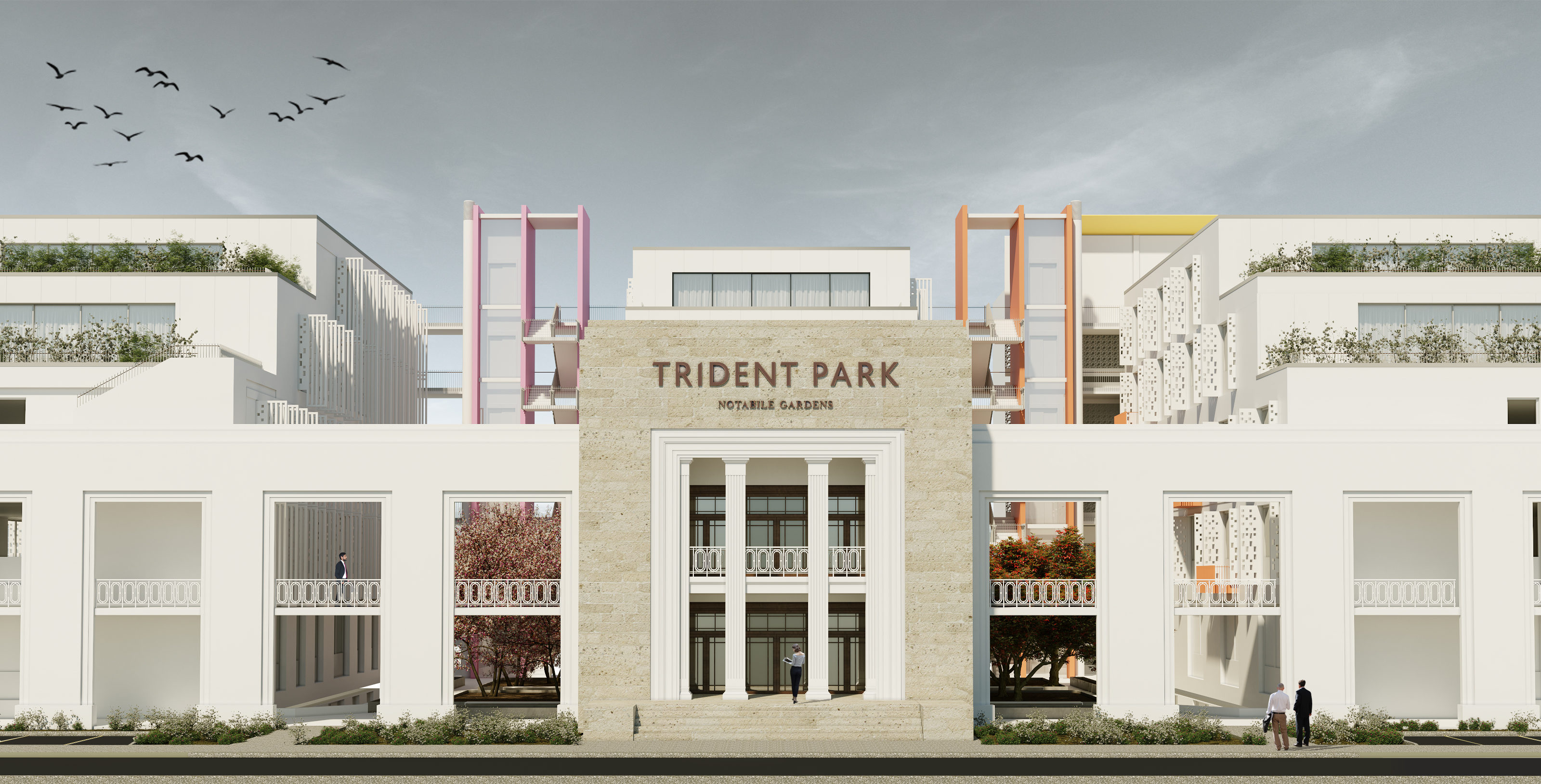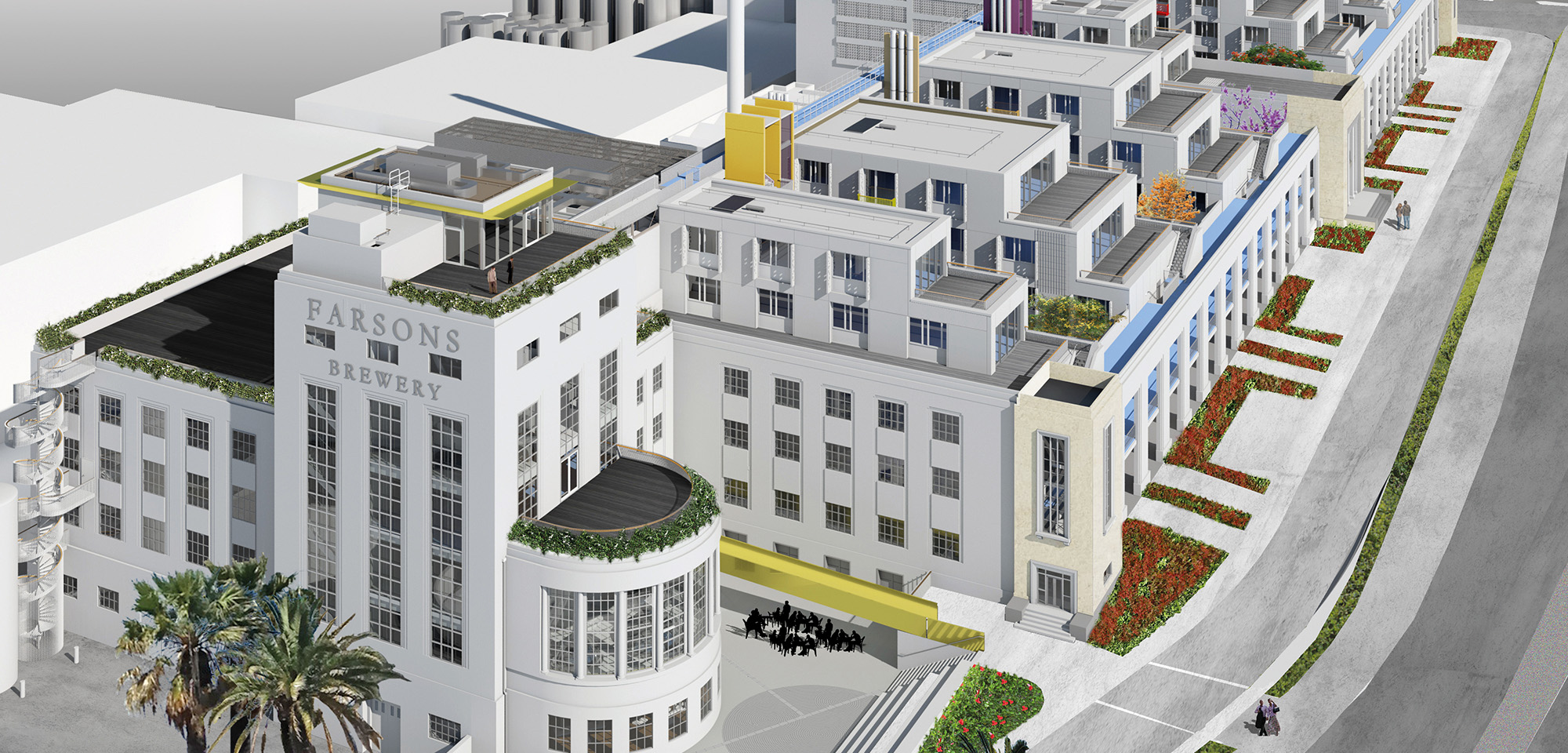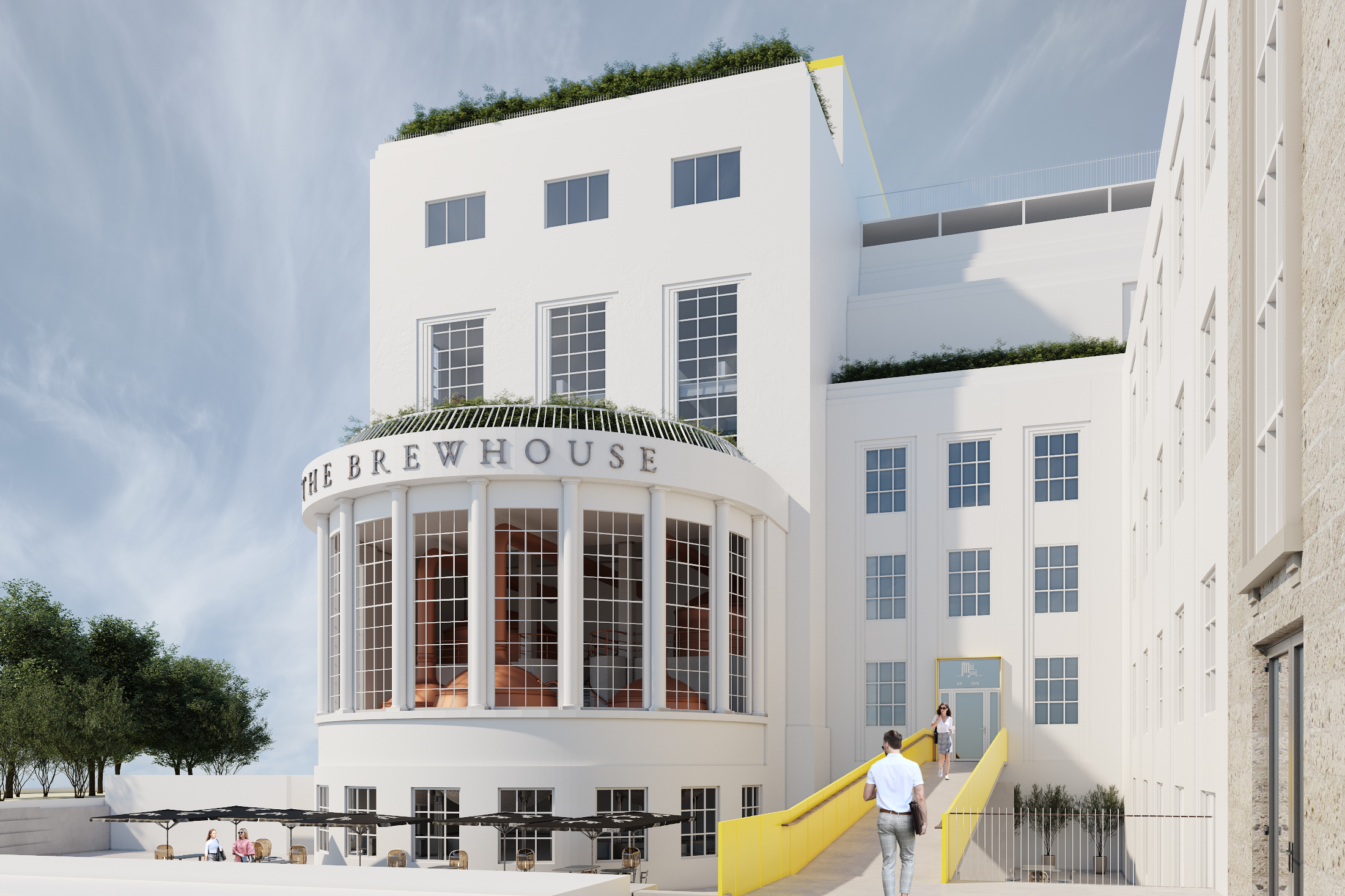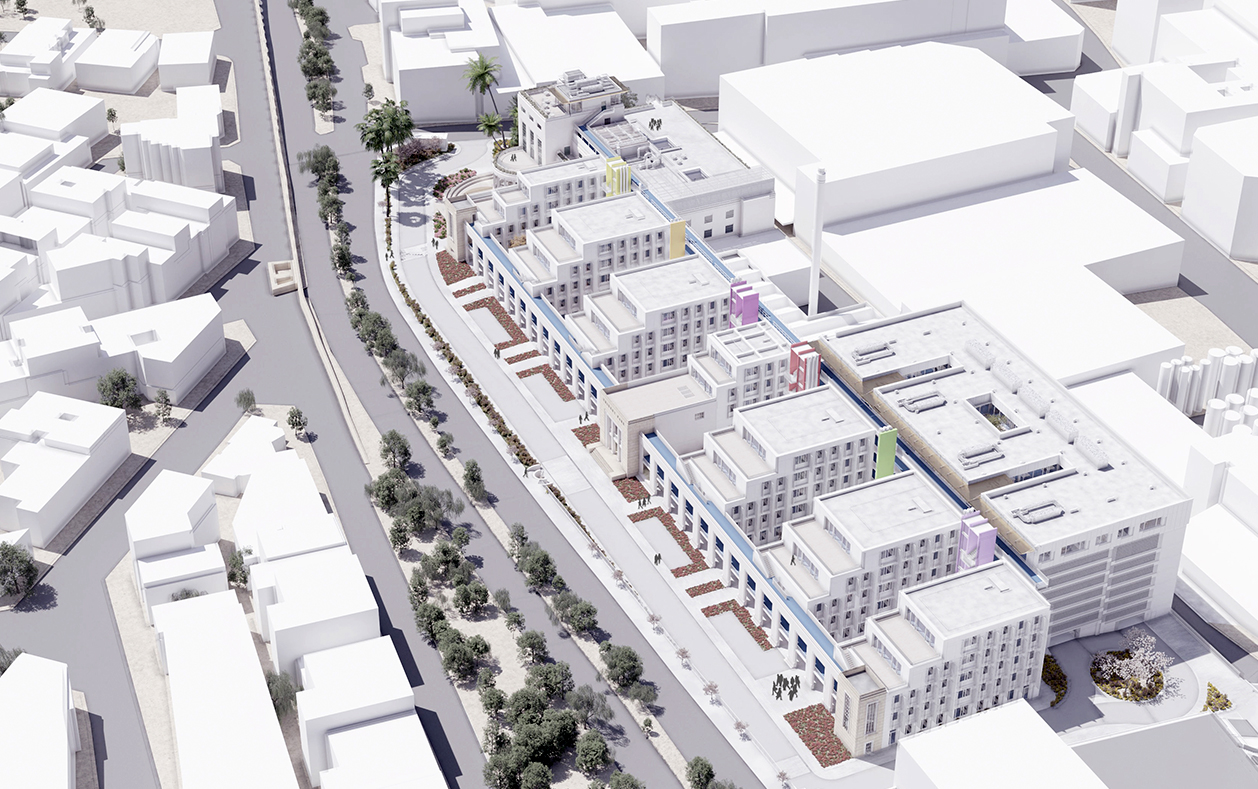All change at the office
Article published on 25th October 2020 on timesofmalta.com and written by Mark Wood (https://timesofmalta.com/articles/view/all-change-at-the-office.827029)
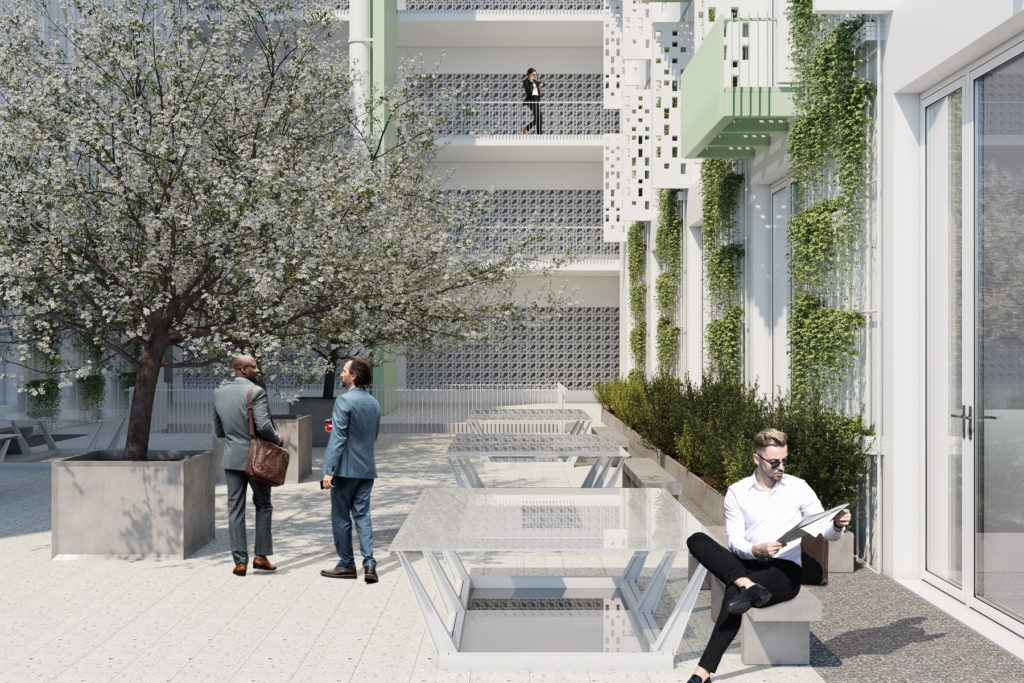
Transformation of the old Farsons brewery into office space is geared to meet the needs of the COVID-19 era.
In 1950, Lewis V. Farrugia, an architect by profession, stood beneath the brand-new Simonds Farsons Cisk brewery that he had planned. Its inauguration was a milestone in the Island’s post-war industrialisation drive.
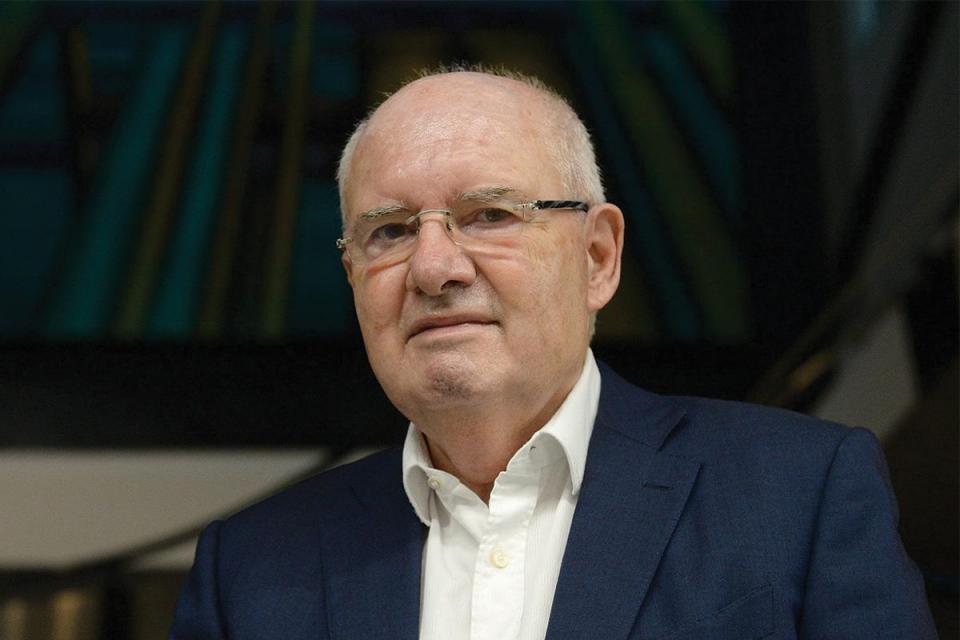
Seventy years later, his son, Farsons Group chairman Louis A. Farrugia – not an architect but a captain of industry in his own right – is overseeing the transformation of the art deco style building. Trident Park will be a low-rise office space that blends aesthetics with cutting-edge technology and leading environmental credentials.
The project carries on the tradition of Farsons as an innovative company that has been a mainstay of Malta’s economic miracle over the decades.
The building was spun off from Farsons to Trident Estates plc in 2018 and is due to open in the middle of next year after a few years in development.
“The story of Farsons is adapting to technology and keeping in touch with consumers, ensuring that it satisfies their wishes and tastes,” said Farrugia, also chairman of Trident Estates, as he stood over a model of Trident Park at Farsons’ offices. Next door in Mriehel, the place was a hive of construction activity.
Farsons had faced the question of what to do with a now vacant but protected building after its brewery moved to an adjacent plot.
“The fact that the building was scheduled limited us. But we were proud of that fact,” said Farrugia.
Malta had just joined the EU when he took the whole board to the UK to look at examples of conversions of buildings from the same era.
After a thorough process of evaluation, the decision was made: “The service economy was growing, especially financial services and gaming, and the demand for office space had skyrocketed.”
The rest of Mriehel, though, stood in stark contrast to the beautiful office space that was being conceived. “It was full of rubbish. How could we spend €50 million in an area that was a dump?”
People still need to meet. And they want a better ambiance
So the Mriehel Foundation was born, a public-private partnership that is gradually upgrading the zone.
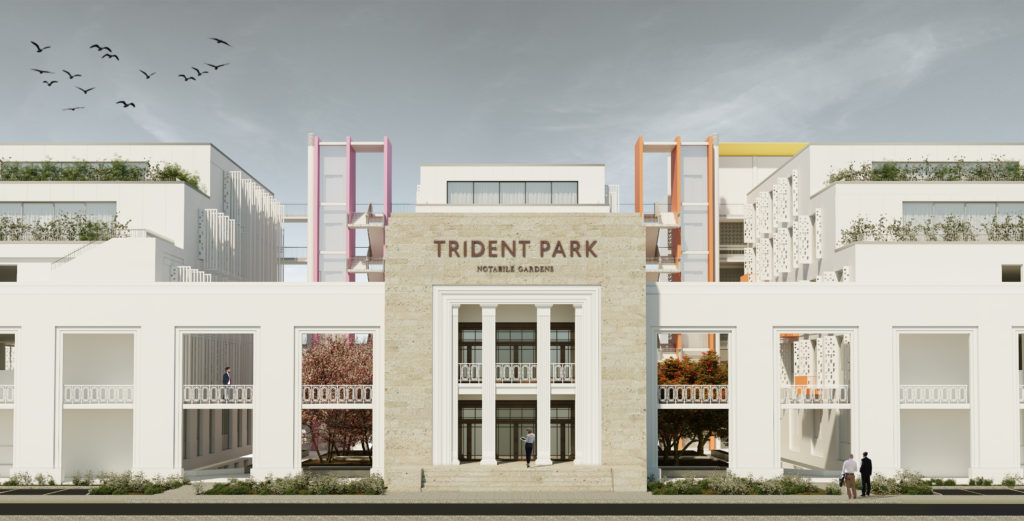
Then COVID-19 struck.
Economies came under enormous strain, companies put their investment plans on ice, business travel was put on hold, conferences and meetings became virtual and office workers scurried home to their makeshift desks.
The leasing of office space seemed to no longer be the great opportunity it once was.
However, while there was a time when the directors considered slowing down, the decision was made to forge ahead and finish as quickly as possible, Farrugia said.
Fortunately for the project, the qualities that Farsons has been built on over the years – far-sightedness, good judgment, solidity – had not been left behind when the factory moved down the road.
“When we decided on the funding scheme we anticipated scenarios where the market would dip. We did not anticipate COVID-19 of course, but we did foresee a time when Malta would not remain at the forefront of financial services.
“Half the project costs are being paid for in cash put up by shareholders. The other half is long-term borrowing. The gearing is very manageable. And Trident Estates has other major assets. So we have a solid financial base going forward.”
Then there is the selling point of the project’s uniqueness. Designed by world renowned studio IRAL London Architects, it consists of seven low-density terraced blocks intersected by landscaped gardens and courtyards, all meeting the strictest environmental codes: a “genuine green office campus and world-class business destination”, as the company puts it.
Cool liquid will run through pipes encased in the concrete so the temperature is kept comfortable without the need for AC. Greenery will abound in the naturally lit spaces.
The car parks will connect directly to each office block via walkways. The premises will have a gym, wellness facilities, childcare centre and catering outlets at the converted old brewhouse next door.
Office size is flexible. So while the demand for office space may be changing, Farrugia is optimistic Trident Park will meet the emerging needs: “Demand is still there for smaller office sites, for example. The debate about working from home is still in its infancy. People still need to meet in offices. And they want to improve their ambiance. That’s the target audience today.”
Indeed, the floor space should be 50 per cent full by the time Trident opens next June, Farrugia says. And because of the way the protected property has been valued, it has managed to keep the rates competitive, he adds.
In fact, Malta’s diminished reputation appears to worry Farrugia more than COVID-19. He has seen first-hand how it has affected business “in more ways than one”.
“There is no substitute for good repute. The only way to mend it is to be committed to the rule of law. It is going to take a long time.
“This project is an asset that will help. It is an example of what works internationally.”
